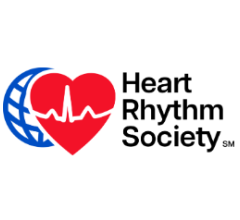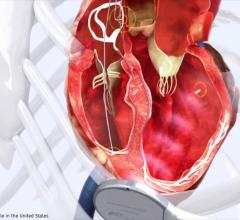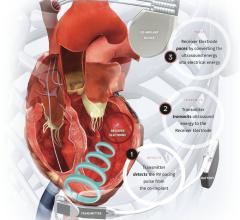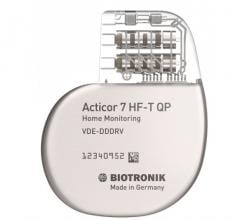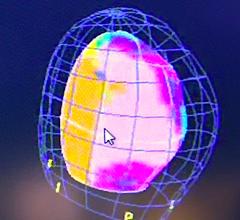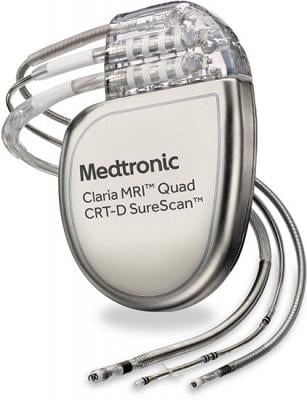
July 6, 2017 — New data showed use of Medtronic’s cardiac resynchronization therapy (CRT) devices with its proprietary AdaptivCRT and EffectiveCRT algorithms results in lower healthcare system costs, and improves therapy delivery in heart failure patients who also have atrial fibrillation (AF). The results of three analyses were presented at the European Heart Rhythm Association (EHRA) EUROPACE-CARDIOSTIM 2017, June 18-21 in Vienna, Austria.
Findings from a European health-economic analysis demonstrated that treating patients with AdaptivCRT results in lower healthcare costs and extends life expectancy by an average of four months. The findings, which span three countries' healthcare systems, showed that lifetime costs for patients treated with AdaptivCRT were lower than for patients treated with traditional pacing algorithms:
| With AdaptivCRT algorithm | Without AdaptivCRT algorithm | |
| Italy | €28,113.00 | €29,215.16 |
| Spain | €29,618.89 | €30,833.93 |
| United Kingdom | €29,425.37 (£25,454.47) | €30,273.19 (£26,274.39) |
The AdaptivCRT algorithm is available in the Medtronic Claria MRI Quad CRT-D SureScan, Amplia MRI Quad CRT-D SureScan, Percepta Quad CRT-P MRI SureScan and Serena Quad CRT-P MRI SureScan systems. It adjusts the way the device paces the heart according to minute-to-minute evaluations of each patient's rhythm, and leads to improved outcomes through reducing patients' odds of a 30-day heart failure readmission and their risk of developing AF.
A second analysis — from the prospective, randomized CRTee study — showed that the Medtronic device-based EffectivCRT during AF algorithm improved effective left ventricular pacing by 19 percent (87±16 percent vs. 68 ± 37 percent; p<0.001) in patients with AF, compared to devices without the technology.
"It is exciting to see that this technology helps increase the amount of CRT delivered during atrial fibrillation," said Giuseppe Boriani, M.D., Ph.D., full professor of cardiology at the University of Modena and Reggio Emilia, Italy. "Many patients with heart failure experience AF at some point, and we now have the ability to better address the individual needs of these difficult-to-treat patients."
AF is one of the most common heart rhythm disorders. It involves an irregular quivering or rapid rhythm in the heart's upper chambers. A large percentage of heart failure patients receiving CRT also have AF, which can significantly reduce patient response to the therapy. The EffectivCRT Diagnostic, exclusive to the Medtronic Claria CRT-D and Percepta CRT-P devices, automatically determines the effectiveness of left ventricular pacing, and the EffectivCRT during AF algorithm automatically adjusts pacing rates during AF.
Finally, the latest economic analysis of Medtronic CRT-defibrillators (CRT-D) demonstrated a highly significant increase in projected device longevity: up to nine years for Claria and Amplia devices, and 8.1 years in Viva XT CRT-Ds, which are substantial improvements compared to predecessor models.
"By improving device longevity, there are substantially fewer device replacements and, in turn, significant cost savings and fewer procedure-related complications," said Haran Burri, M.D., Ph.D., associate professor of cardiology at the University Hospital of Geneva, Switzerland.
For more information: www.medtronic.com


 July 21, 2025
July 21, 2025 
